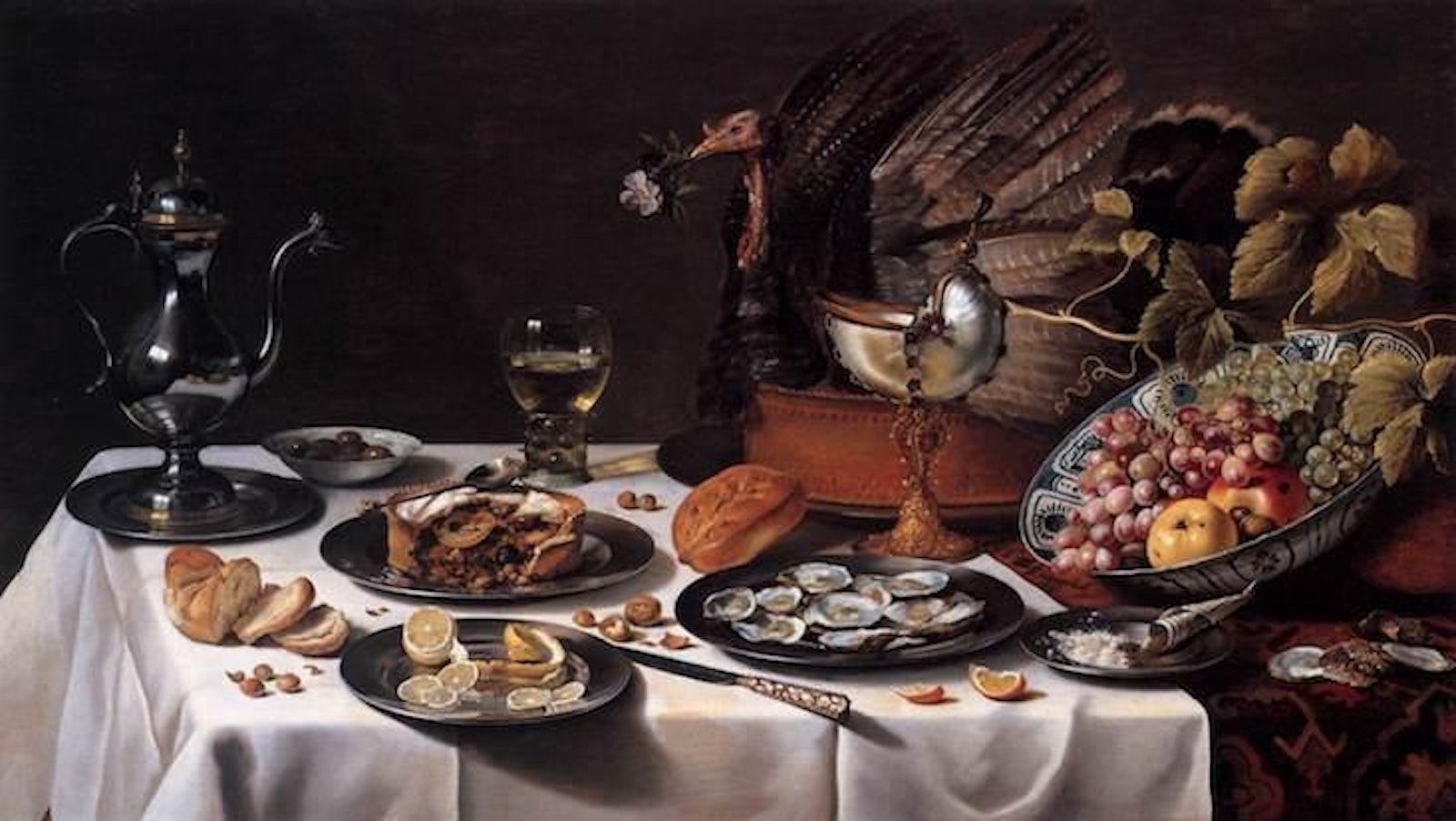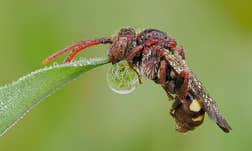It is a melancholy object to those, who know the plight of this Planet, when they see in the supermarkets, the freezers crowded with gelid corpses of meleagrine fowl.
I think it is agreed by all parties, that this prodigious number of dead Turkeys, murdered en masse for Thanksgiving and shipped across the country, is, in the present deplorable State of the Earth, a very great additional grievance; and therefore whoever could find out a fair and expedient method of making Thanksgiving more environmentally friendly, would deserve so well of the publick, as to have their statue set up for a preserver of the World.
The number of Turkeys for Thanksgiving being usually reckoned at 46 million; of these, the average weight is 15 pounds; from this number I calculate that approximately 690 million pounds of the fowl are consumed on this annual occasion. The question therefore is, What impact does this have on our good Earth?
The environmental Tradition of “waste not, want not” has deep roots in American history.
As I have been informed by the work of leading climate scientists, the current level of carbon dioxide rests just above 400 parts per million. Estimates for the carbon footprint of Turkey place it lower than that of other animals, but with legions slaughtered and transported every year, it remains a not insignificant Burden. For a family of eight, one Turkey averages about 50 pounds of carbon dioxide for transportation and preparation. Given 46 million Turkeys, the carbon footprint of Thanksgiving Turkeys is well over 2 billion pounds of carbon dioxide.
I shall now therefore humbly propose my own thoughts, which I hope will not be liable to the least objection.
I have been assured by a very knowing acquaintance that a fellow Dinner Guest is a most delicious nourishing and wholesome food, whether stewed, roasted, baked, or boiled; and I make no doubt that it will equally serve in a fricassee, or a ragout.
Dinner Guests will be in season throughout the year, but are most readily found during holiday occasions, to which they gather and are plentiful. Whereas even the leaner and hungrier of Dinner Guests measures over 100 pounds, One shall be more than sufficient for the purposes of a Thanksgiving feast. This, I assure you, is a far more environmental Solution than the Turkey.
Consider, for a moment, the benefits to such a Scheme.
Firstly, the wastes—carbon and otherwise—of Thanksgiving Turkeys shall be eliminated. As I have already mentioned, this represents a significant reduction in the realm of carbon dioxide, but would also limit pollution and odors most foul that arise from Turkey farms.
Secondly, we must consider that Dinner Guests travel. The carbon footprint of all traveling Dinner Guests may be estimated around 12 billion pounds of carbon dioxide. This great number could be mitigated by removing, for millions of Dinner Guests, the necessity of a return trip.
Thirdly, depending on the age of the Dinner Guest-cum-entree, Thanksgiving may obviate the need for many a funeral, which are both expensive and have a large environmental footprint, due to travel costs of guests—many of whom are conveniently gathered at the table for Thanksgiving.
Fourthly, much of the Turkey goes to waste. Some estimates place the amount of Turkey meat thrown away at nearly $300 million. It is quite reasonable to assume we would be much less wasteful with the flesh of our dear Dinner Guests.
Fifthly, for particularly squeamish Thanksgiving tables troubled by taste and texture of the Dinner Guests internal organs, there is a Solution: They may be saved and donated. Due to the lack of planning around Death, most organs are usually unrecoverable from the deceased. This Scheme offers the potential to save many lives.
Sixthly, there is precedent for such an economical use of Resources. During the winters of 1609 and 1610, Jamestown—the first English colony in the Americas—saw its enterprising colonists feast on one another during the holiday season. The environmental Tradition of “waste not, want not” has deep roots in American history.
I can think of no one Objection, that will possibly be raised against this proposal, unless it should be urged, that millions of people will die every year. This I freely own, and ‘twas indeed one principal design in offering it. Therefore let no one talk to me of other expedients: Of eating local Turkey or no meat at all: Of recycling and composting Food: Of avoiding Travel and spending the holidays with those close and near: Of donating to offset One’s carbon footprint: Of promoting Environmentalism fervently in all aspects of Life but judiciously accepting when and where personal sacrifices should be made and not zealously fighting to eliminate all waste.
Therefore I repeat, let no one talk to me of these and the like expedients, ‘till they hath at least some glympse of Hope, that there will ever be some hearty and sincere attempt to put them into effect.
Dan Garisto is an editorial intern at Nautilus.
*This article is intended to be satirical.


























